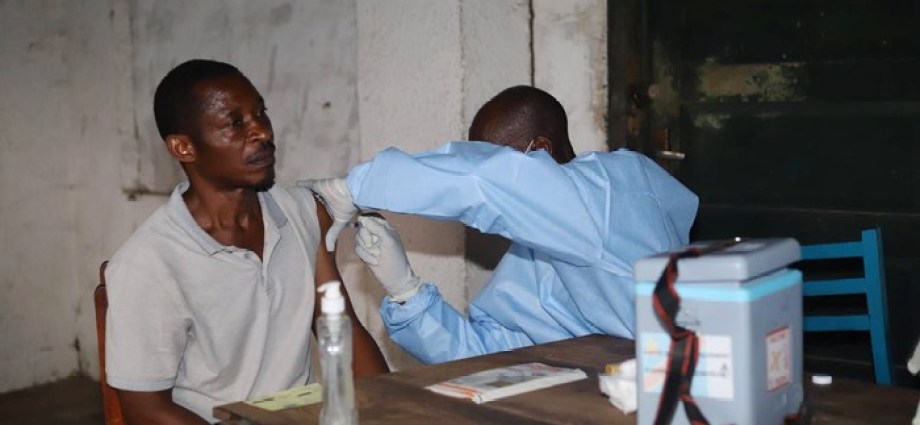Ebola Vaccination Campaign Launches in Democratic Republic of Congo as Outbreak Intensifies
In a swift and coordinated response to a newly declared Ebola outbreak, health authorities in the Democratic Republic of the Congo (DRC) have initiated a targeted vaccination campaign in the Bulape health zone, located in the country’s Kasai Province. Frontline health workers and known contacts of infected individuals are the first to receive the life-saving jabs in a bid to contain the highly contagious and often fatal virus.
Urgent Deployment of Vaccines
An initial shipment of 400 doses of the Ervebo Ebola vaccine has already reached Bulape, one of the current epicenters of the outbreak. These doses were drawn from a national stockpile of 2,000 vaccines prepositioned in the capital city of Kinshasa. Health officials have confirmed that additional supplies will be delivered to affected areas in the coming days as the response scales up.
The urgency of the situation cannot be overstated. Ebola virus disease (EVD) has a high mortality rate and spreads rapidly through direct contact with bodily fluids. In regions with limited healthcare infrastructure, like parts of the DRC, outbreaks can quickly spiral into humanitarian crises.
Ring Vaccination Strategy in Action
The vaccination effort employs the ring vaccination strategy, a method proven effective during previous Ebola outbreaks. This approach involves identifying and immunizing individuals who have been in close contact with confirmed Ebola patients, thereby creating a protective “ring” around each case to prevent further transmission.
Health care workers and first responders operating in outbreak areas are also prioritized for vaccination. Given their heightened exposure risk, protecting these essential personnel is critical to maintaining a functional health response system.
The Ervebo vaccine, which has been rigorously tested and deemed safe by global health authorities, specifically targets the Zaire ebolavirus species—confirmed as the strain behind the current outbreak.
International Support and Expanded Vaccine Allocation
Recognizing the severity of the situation, the International Coordinating Group (ICG) on Vaccine Provision has approved the shipment of approximately 45,000 additional Ebola vaccine doses to the DRC. This decision underscores the global commitment to supporting the country’s outbreak containment efforts.
The World Health Organization (WHO) played a key role in facilitating the request for extra doses and, alongside partners like UNICEF, helped draft a comprehensive vaccination rollout plan. Training is also underway for local vaccination teams, with an emphasis on data collection, cold chain management, and community engagement.
Treatment and Logistical Support
Beyond vaccinations, treatment courses of the monoclonal antibody therapy Mab114 have been dispatched to Bulape treatment centers. This therapeutic drug has shown promising results in improving survival rates among Ebola patients and is a cornerstone of clinical management during outbreaks.
On the ground, WHO has deployed 48 experts specializing in disease surveillance, infection prevention, clinical care, logistics, and community engagement. These professionals are working shoulder-to-shoulder with government agencies and partner organizations to strengthen response mechanisms and curb the virus’s spread.
Regional Preparedness and Risk Assessment
Neighboring countries are also on high alert. WHO is collaborating with national health authorities across the region to enhance operational readiness, improve surveillance systems, and ensure rapid detection and containment of potential cross-border cases.
In its latest risk assessment, WHO classified the public health threat posed by this outbreak as high at the national level, moderate at the regional level, and low globally. While this suggests limited immediate risk beyond Central Africa, the situation remains volatile and demands continued vigilance.
Why This Outbreak Matters
The DRC is no stranger to Ebola. The country has experienced multiple outbreaks over the past decade, including a devastating epidemic in the east that claimed thousands of lives. Each new outbreak strains an already fragile healthcare system and deepens public mistrust—often fueled by misinformation and fear.
Yet, with each response, lessons are learned and strategies refined. The rapid deployment of vaccines and therapeutics this time around reflects hard-won progress in epidemic preparedness. But challenges remain: remote geography, community resistance, and logistical hurdles can still hamper even the best-laid plans.
A Race Against Time
As vaccination teams fan out across Bulape and surrounding areas, the world watches closely. The success of this campaign will depend not only on the availability of supplies but also on the trust and cooperation of local communities. Health workers are not just administering vaccines—they’re also battling fear and stigma, one conversation at a time.
What happens in the DRC in the coming weeks could set a precedent for future outbreak responses across the continent and beyond. Will the ring vaccination strategy hold the line? Can treatment centers cope with a surge in cases? These are the questions keeping responders awake at night.
Conclusion: A Global Health Imperative
The Ebola outbreak in the DRC is a stark reminder of the persistent threat posed by emerging infectious diseases. It also highlights the importance of global solidarity, robust health infrastructure, and continuous investment in research and development for vaccines and treatments.
While the risk beyond the region remains low for now, in our interconnected world, no outbreak is ever truly “local.” The international community must remain engaged, supportive, and ready to act—because when it comes to viruses like Ebola, none of us are safe until all of us are safe.
This article is based on reporting from the World Health Organization and other official health bodies. For further details and ongoing updates, refer to the original source material and official situation reports.


